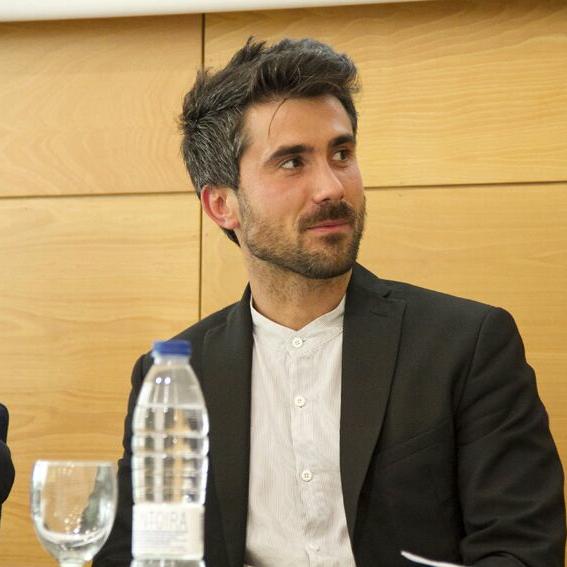Studying at the University of Verona
Here you can find information on the organisational aspects of the Programme, lecture timetables, learning activities and useful contact details for your time at the University, from enrolment to graduation.
Academic calendar
The academic calendar shows the deadlines and scheduled events that are relevant to students, teaching and technical-administrative staff of the University. Public holidays and University closures are also indicated. The academic year normally begins on 1 October each year and ends on 30 September of the following year.
Course calendar
The Academic Calendar sets out the degree programme lecture and exam timetables, as well as the relevant university closure dates..
| Period | From | To |
|---|---|---|
| 1° periodo lezioni (1A) | Sep 16, 2021 | Oct 30, 2021 |
| 1° periodo lezioni (1B) | Nov 5, 2021 | Dec 16, 2021 |
| 2° periodo lezioni (2A) | Feb 14, 2022 | Mar 26, 2022 |
| 2° periodo lezioni (2B) | Apr 4, 2022 | May 20, 2022 |
| Session | From | To |
|---|---|---|
| Prove parziali 9/12 CFU - Prove finali 6 CFU del periodo 1A | Nov 2, 2021 | Nov 4, 2021 |
| 1° appello invernale - dicembre 2021 | Dec 17, 2021 | Dec 23, 2021 |
| Sessione invernale - 2 appelli | Jan 8, 2022 | Feb 12, 2022 |
| Prove parziali 9/12 CFU - Prove finali 6 CFU del periodo 2A | Mar 28, 2022 | Apr 2, 2022 |
| Sessione estiva - 3 appelli | May 23, 2022 | Jul 27, 2022 |
| Sessione autunnale - 1 appello | Aug 25, 2022 | Sep 17, 2022 |
| Period | From | To |
|---|---|---|
| Festa di Tutti i Santi | Nov 1, 2021 | Nov 1, 2021 |
| Festa dell'Immacolata Concezione | Dec 8, 2021 | Dec 8, 2021 |
| Vacanze di Natale | Dec 24, 2021 | Jan 6, 2022 |
| Vacanze Pasquali | Apr 15, 2022 | Apr 19, 2022 |
| Festa della Liberazione | Apr 25, 2022 | Apr 25, 2022 |
| FESTA DEL LAVORO | May 1, 2022 | May 1, 2022 |
| Santo Patrono | May 21, 2022 | May 21, 2022 |
| Festa della Repubblica | Jun 2, 2022 | Jun 2, 2022 |
Exam calendar
Exam dates and rounds are managed by the relevant Law Teaching and Student Services Unit.
To view all the exam sessions available, please use the Exam dashboard on ESSE3.
If you forgot your login details or have problems logging in, please contact the relevant IT HelpDesk, or check the login details recovery web page.
Academic staff
 bernardo.calabrese@univr.it
bernardo.calabrese@univr.it
 stefania.cretella@univr.it
stefania.cretella@univr.it
 mila.dallapreda@univr.it
mila.dallapreda@univr.it
 roberto.flor@univr.it
roberto.flor@univr.it
 stefano.gatti@univr.it
stefano.gatti@univr.it
 mariangela.massella@univr.it
mariangela.massella@univr.it
 pietro.schiro@univr.it
pietro.schiro@univr.it
 diego.tilola@univr.it
diego.tilola@univr.it
Study Plan
The Study Plan includes all modules, teaching and learning activities that each student will need to undertake during their time at the University.
Please select your Study Plan based on your enrollment year.
1° Year
| Modules | Credits | TAF | SSD |
|---|
2° Year activated in the A.Y. 2022/2023
| Modules | Credits | TAF | SSD |
|---|
1 module between the following1 module between the following| Modules | Credits | TAF | SSD |
|---|
| Modules | Credits | TAF | SSD |
|---|
1 module between the following1 module between the following| Modules | Credits | TAF | SSD |
|---|
Legend | Type of training activity (TTA)
TAF (Type of Educational Activity) All courses and activities are classified into different types of educational activities, indicated by a letter.
Type D and Type F activities
Le attività che consentono l’acquisizione dei crediti riservati alle attività formative a libera scelta dello studente (TAF D) sono le seguenti:
- Un insegnamento previsto nell’elenco delle attività formative (TAF D) allegato al piano didattico del corso di laurea in Diritto per le tecnologie e l’innovazione sostenibile;
- Un insegnamento attivato nei Corsi di studi afferenti al Collegio didattico;
- Un laboratorio didattico attivato nei Corsi di studi afferenti al Collegio didattico;
- Un laboratorio didattico attivato nei Corsi di studi afferenti al Dipartimento di Scienze Giuridiche;
- Un insegnamento previsto dall’Offerta Formativa di Ateneo, non impartito nell’ambito dei corsi di studi afferenti al Collegio didattico: il riconoscimento dei crediti acquisiti sarà subordinato alla preventiva presentazione di coerenti programmi formativi valutati dalla Commissione istruttoria per la didattica e approvati dal Collegio didattico.
- Attività formative organizzate dai singoli docenti del Collegio didattico o del Dipartimento di Scienze Giuridiche: previa approvazione del Collegio ad esse verrà attribuito, dopo un’apposita verifica, un credito per ogni 6 ore di frequenza obbligatoria;
- Attività formative che implicano la partecipazione a convegni o seminari organizzati sotto il “logo” del Dipartimento di Scienze Giuridiche o dell’Ateneo: devono essere preventivamente approvate dal Collegio didattico indicando un docente di riferimento del Collegio didattico ovvero del Dipartimento di Scienze Giuridiche. Un credito per ogni giornata di convegno o di seminario si acquisisce dopo apposita verifica che dimostri l’avvenuta fruizione culturale del tema del convegno o del seminario.
• Ulteriori competenze linguistiche (3 CFU);
• Stage;
• Un laboratorio didattico attivato nei Corsi di studi afferenti al Collegio didattico;
• Un laboratorio didattico attivato nei Corsi di studi afferenti al Dipartimento di Scienze Giuridiche.
Al link https://www.univr.it/it/i-nostri-servizi/segreterie-studenti/giurisprudenza#categdoc_7103 la modulistica per l'inserimento di attività non selezionabili in autonomia dallo studente in sede di compilazione del piano degli studi.
| years | Modules | TAF | Teacher |
|---|---|---|---|
| 1° | Legal English B2 | F |
Francesca Ragno
(Coordinator)
|
| years | Modules | TAF | Teacher |
|---|---|---|---|
| 1° | Partecipated justice and reforms. The settlement of conflicts with people and for people | D | Not yet assigned |
Transnational Commercial Law (2021/2022)
Teaching code
4S009796
Teacher
Coordinator
Credits
6
Also offered in courses:
- Uniform commercial law of the course Combined Bachelor's + Master's degree in Law
- European Private Law of the course Combined Bachelor's + Master's degree in Law
Language
English
Scientific Disciplinary Sector (SSD)
IUS/02 - COMPARATIVE PRIVATE LAW
Period
2° periodo lezioni (2A) dal Feb 14, 2022 al Mar 26, 2022.
Learning outcomes
This course is included in the learning area on Global Dimension of Legal Phenomena. It aims to provide the student with advanced legal knowledge of the transnational dynamics of commercial relations and their functioning. A specialist in transnational commercial law makes use of methods and key concepts of modern applied law, with particular regard to uniform commercial law.
At the end of the course, the student will have acquired the ability to analyze and understand the different regulatory systems that, although based on different rationales, coexist and characterize the legal approach to sustainable economic development, with particular reference to the multilevel and transnational functioning of modern law.
At the end of the course, the student will also have acquired the ability to face and solve practical problems typical of the professional context in which he/she will operate, thus orienting his/her competence to the goal of contractual compliance and to the prevention of the judicial conflict. He/she will be able to verify the practical and applicative consequences of the theoretical and regulatory framework and to set, in written and oral form (and also through group working, written exercises and the method of Problem Based Solving - PBS), the solution of concrete issues, using the appropriate and specific disciplinary vocabulary, adopting the correct lines of reasoning and argumentation, and formulating autonomous judgments. The teaching method used is functional to the continuous learning and updating of acquired knowledge.
Program
The course will cover the following topics:
1) The International Unification of Private and Commercial Law;
2) Transnational Law of Sales;
3) Transnational Law of Agency and Distribution;
4) Transnational Law of International Payment Undertakings and Bank Guarantees;
5) Transnational Law of Insolvency;
6) Transnational Litigation and International Commercial Arbitration.
Bibliography
Examination Methods
The final exam, consisting of an oral discussion, aims at verifying the level of achievement of the learning objectives previously identified.
Career prospects
Module/Programme news
News for students
There you will find information, resources and services useful during your time at the University (Student’s exam record, your study plan on ESSE3, Distance Learning courses, university email account, office forms, administrative procedures, etc.). You can log into MyUnivr with your GIA login details: only in this way will you be able to receive notification of all the notices from your teachers and your secretariat via email and also via the Univr app.
Internships
Internships are aimed at enabling students to gain direct knowledge of the world of work and to acquire specific professional skills.
Internships are carried out under the responsibility of an individual lecturer, and can be carried out in professional firms, public administration bodies and companies recognised by the University of Verona.
Any CFU credits gained by doing internships will be recognised and recorded by the University in accordance with the relevant University regulations in force (Regolamento d’Ateneo per il riconoscimento dei crediti maturati negli stage universitari).
For further information on internships, please go to: https://www.univr.it/it/i-nostri-servizi/stage-e-tirocini.
Graduation
Student mentoring
Tutoring services are managed by the Department of Law and provide the following types of activities:
- welcome and orientation (orientation tutoring)
- support to inclusion and accessibility (specialized tutoring)
- social media management (orientation tutoring)
- support to Panopto for Workers project (facilitator tutoring)
- support to teaching and to thesis drafting (educational tutoring).
For further information, please refer to the webpage Tutorato per studentesse e studenti – Giurisprudenza.
During the course of the year, the Quality Assurance body of the Degree Course continuously monitors the tutoring activities provided.
A ‘mentor’ is identified for each student. Mentors are appointed among the members of the faculty who serve in the Quality Assurance body of the Degree Course.
The following categories of mentors are provided:
A) mentor for orientation –at the request of the students entrusted to him/her, the mentor contributes to the structuring of their study plan, as well as to help familiarise with the university environment and with the specific ways of organizing time and methods for studying;
B) mentor for students whose career is not in line with the Course schedule – this mentoring facilitates the completion of the study plan and graduation; responsibility for this is entrusted to the Quality Assurance body of the Degree Course, which takes the necessary organisational measures.
Language skills
Gestione carriere
Student login and resources
Modalità e sedi di frequenza
La frequenza non è obbligatoria.
Maggiori dettagli in merito all'obbligo di frequenza vengono riportati nel Regolamento del corso di studio disponibile alla voce Regolamenti nel menu Il Corso. Anche se il regolamento non prevede un obbligo specifico, verifica le indicazioni previste dal singolo docente per ciascun insegnamento o per eventuali laboratori e/o tirocinio.
È consentita l'iscrizione a tempo parziale. Per saperne di più consulta la pagina Possibilità di iscrizione Part time.
La sede di svolgimento delle lezioni e degli esami è il Palazzo e aule didattiche di giurisprudenza

 +39 045 802 8549
+39 045 802 8549





























